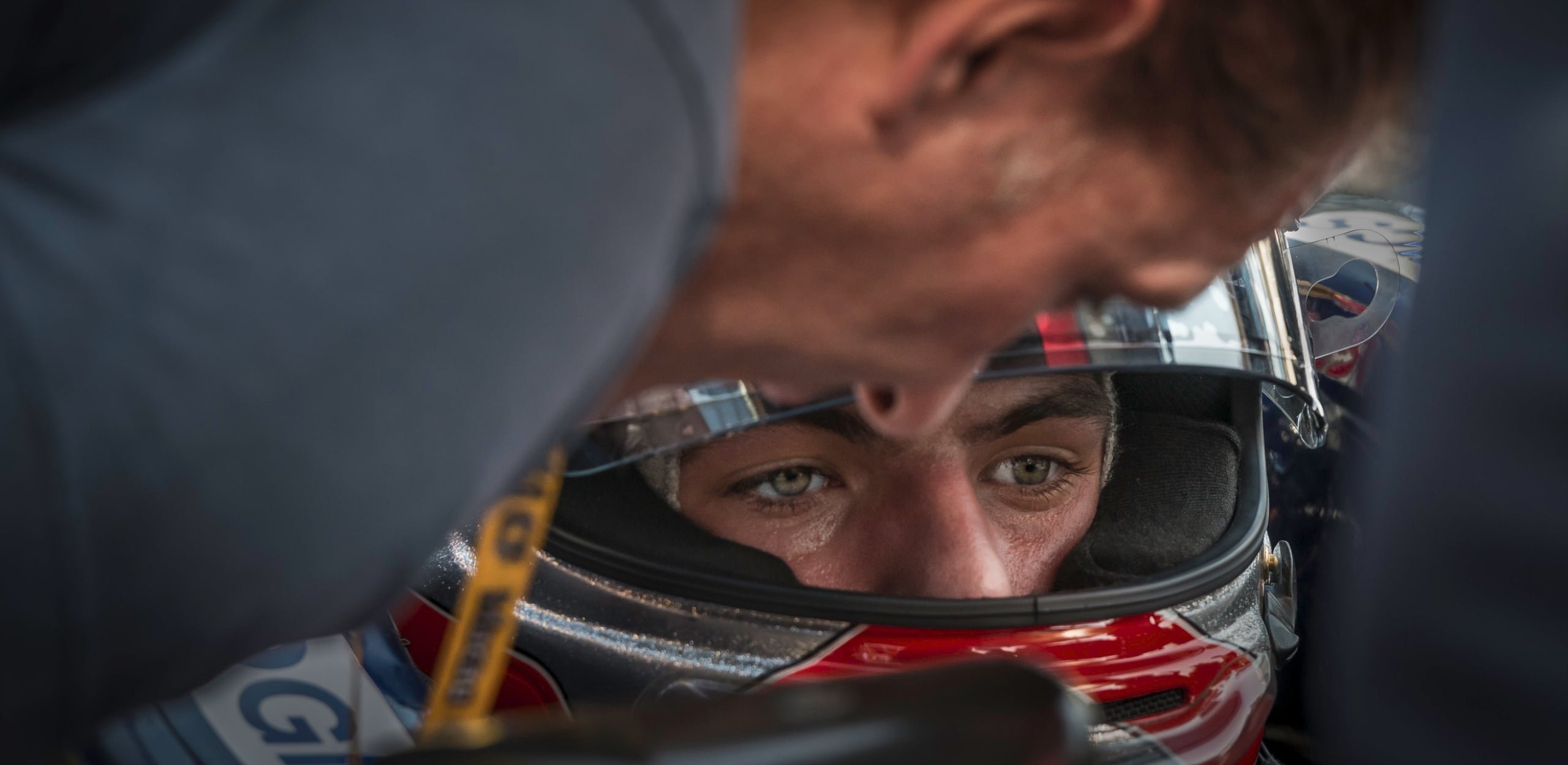
It was Saturday of the 2014 Macau Grand Prix weekend. Father and son, racers both, are shooting the breeze.
The pair are crouched together on tool boxes at the rear of the Van Amersfoort Racing Formula Three team pit box, surrounded by tyres and aero bodywork and chaos. Mechanics clang spanners, air guns whir, the boisterous din of hard-charging touring cars attack the senses from the start-finish straight. The aroma of race fuel clogs the nostrils. This environment is their idea of heaven.
They are discussing set-up, braking points and precise traffic management on the narrow ribbon of tarmac which threads its way through the former Portuguese enclave.
Except this is no ordinary father and son. This is Jos Verstappen and his precocious prodigy Max. This is a parent-protégé union founded on a ravenous passion for motor racing. Extreme speed, intolerable g-forces, all pushing body, mind and machine to the limit. Confronting the ultimate risk. This is their fix.
In each other’s company, they talk only of their specialised subject. Motor racing is the solitary thing on their minds.Always has been. Veer momentarily off topic and the conversation is brought back to their comfort zone. There is measured affection, but nothing tactile. Their admiration is unconditional, understated and unpretentious. There is mutual respect when they talk of each other. This is a special bond. This is a “mate-ship”.
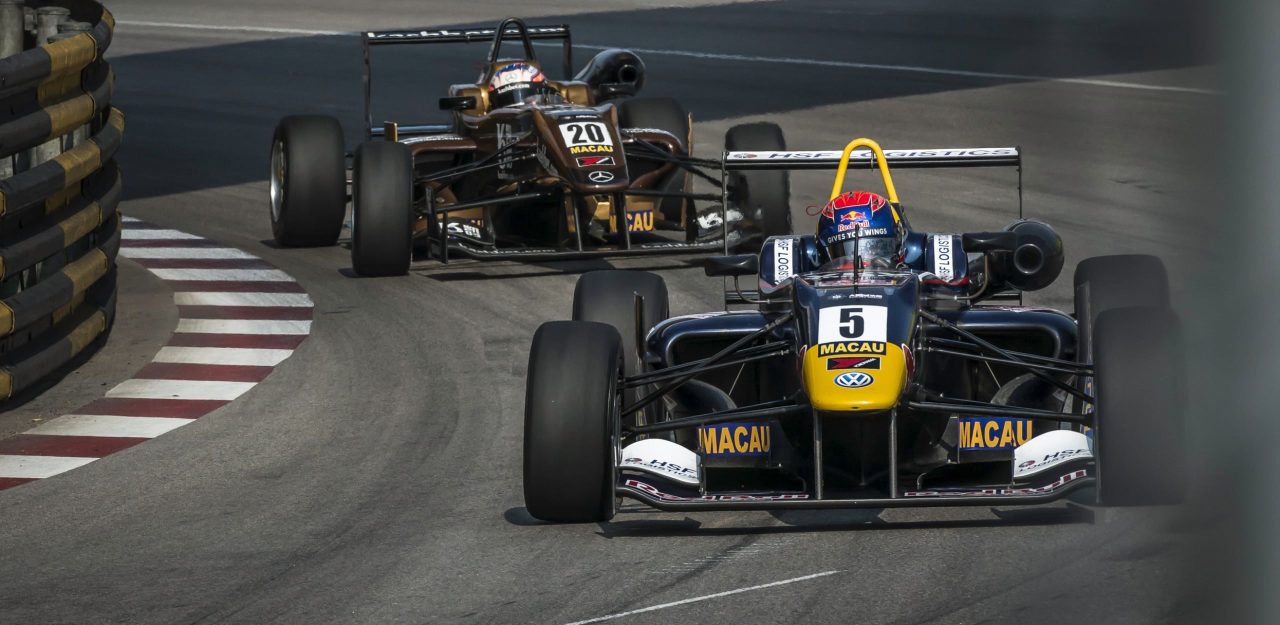
Engines, cars, and bikes have been the glue in their relationship since Max debuted in a kart at four and a half years of age. A progression through Dutch, Belgian and international classes culminated in the first of two world titles at 13. The second came two years later in the elite KZ1 class.
He graduated to tests in Formula Renault in 2013 and dabbled with the Florida Winter Series, organised under the auspices of the Ferrari Driver Academy.
In 2014, his first full season of open-wheel racing, he campaigned in the FIA European Formula Three Championship, where he finished third.
What happened next belongs in a fairy tale.
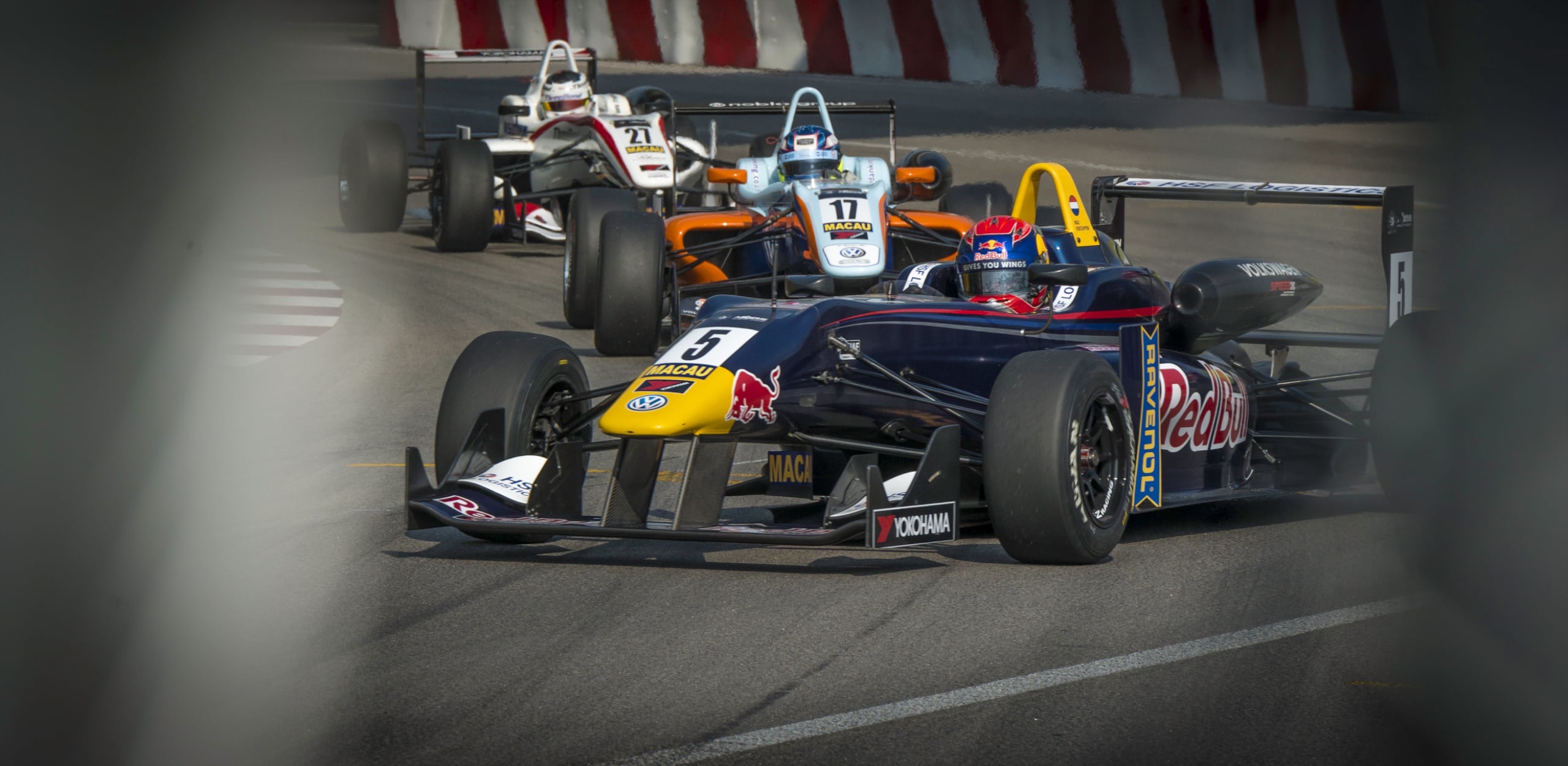
Macau is a season-ending diversion. Of much bigger importance is the fact that Max has recently been announced as a Scuderia Toro Rosso race driver for the 2015 season. It is an unprecedented ascent to Formula One, the pinnacle of motor sport. An ambition fulfilled.
Almost.
Helmut Marko, the head of Red Bull Racing’s driver development programme, and arch talent spotter, plucked Max from relative obscurity just like Sebastian Vettel, Daniel Ricciardo and Daniil Kyvat before him.
Max would thus become the youngest world championship grand prix driver in the history of the sport at the season-opening Australian Grand Prix at 17 years and 166 days.
The announcement had been met with surprise, intrigue – and stinging criticism from Jacques Villeneuve.
The French-Canadian, the world champion of 1997, is never one to proffer a bouquet where a brickbat will do. “I think Max is an insult. Does Red Bull realise it is putting a child in Formula 1? Before you start playing with the lives of others, you have to learn, and it is just not Formula 1’s role to teach,” he tells Italian motorsport magazine Omnicorse.
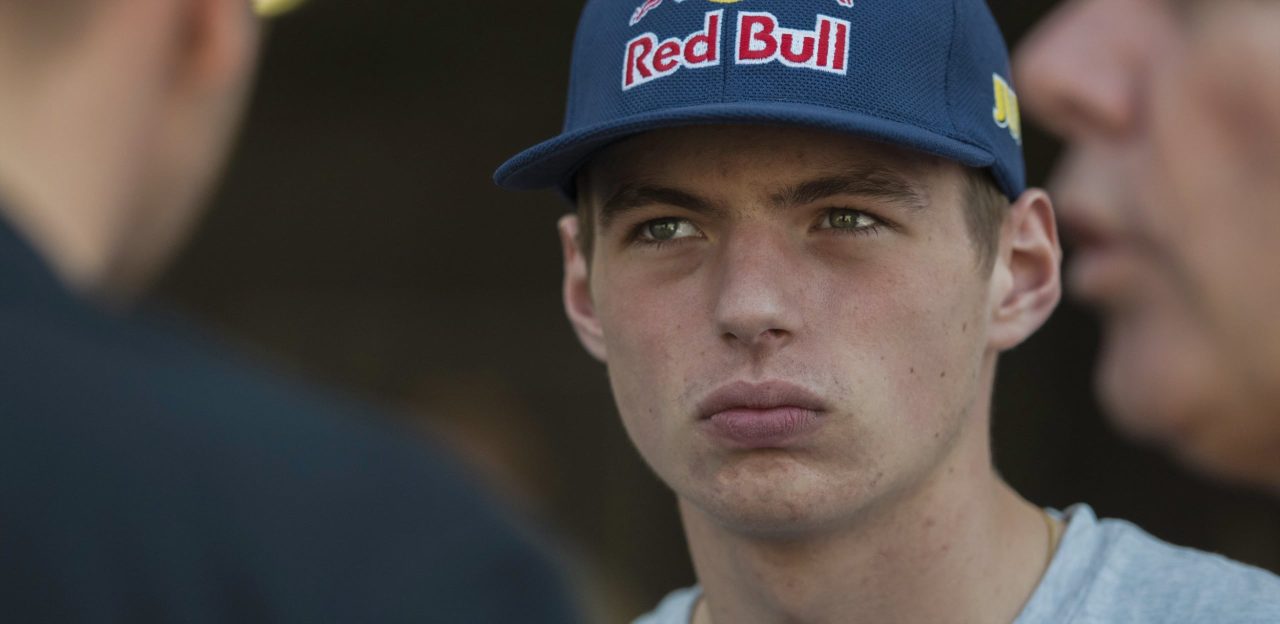
Max offers a counter view. “In the end, age is just a number,” says Max, tall and lean and with chiselled cheekbones borrowed from his Dutch father. The Red Bull Driver programme prepares you well. I feel like I am ready and I feel like I belong in Formula One. I’ve been chosen because Toro Rosso and Red Bull believe in me and I aim to repay them by not letting them down. If I didn’t think I was good enough, if Red Bull didn’t think I was good enough, I wouldn’t be in Formula One. Some people have said that to step in to Formula One after just one season of car racing is too soon, but I want to prove those people wrong.”
“In the end, age is just a number,” says Max
Shooting a gaze at his father, in search of added weight for the case for the defence, he adds: “I’ve always had my
Dad with me. He was my mechanic, my coach and my engine tuner, so we have done everything together. I think that was a great help for me.
“Sometimes fathers are always positive about their sons, but you also have to be straight and honest. That is what we have between us. He pushes me in only the things that he and I both know I can do better.”
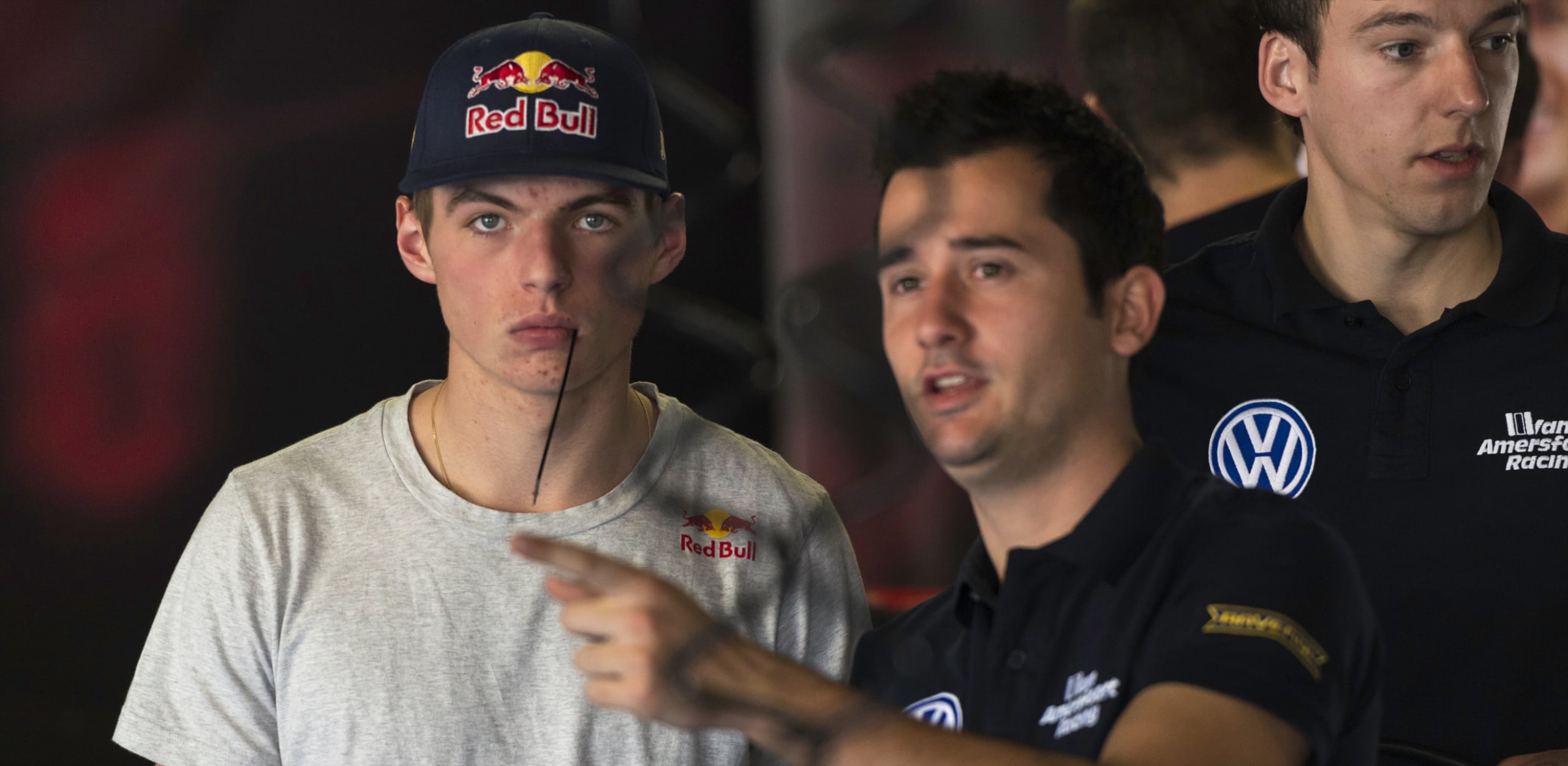
“He never pushes me to go faster. Only to do things better. To be a better driver and a better person outside of the car. If I make mistakes, he doesn’t need to tell me what I already know. We’re always trying to make myself better than him – even my Dad wants that.”
Jos, now 43, solid as a rugby union front rower and equally uncompromising, completed 107 grands prix in a career spanning nine years. Considered a formidable opponent by his contemporaries, fast and belligerent – often leading to close encounters with gravel traps – it is also widely acknowledged that his natural talent and undisputed desire was held back by inferior machinery at Simtek, Footwork, Tyrrell, Stewart, Arrows and Minardi. In a competitive car at Benetton, alongside Michael Schumacher in 1994, we saw glimpses – as podiums at Hungary and Belgium will attest to.
But this is Max’s time.
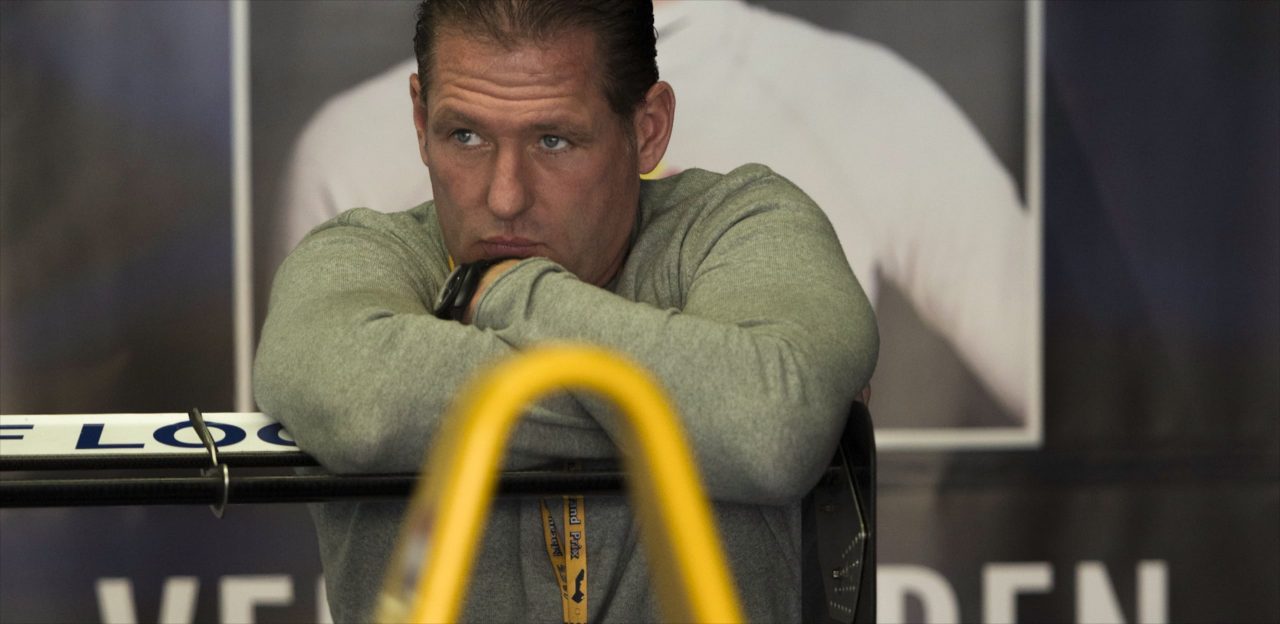
Jos weighs into the debate over age, as a proud father and someone who recognises, like no other, his son’s exceptional skills at the controls of a modern Formula One car. Multi-faceted energy-boosting, hybrid power unit, bucket loads of downforce, almost 900bhp under the right foot, speeds in excess of 330 km/h – it’s a lot for a 17-year-old to take on.
“People who criticize Max for being in Formula One because of his age – those people don’t know Max. Of course they are waiting to see how he handles the pressure of Formula One and maybe waiting for him to fail,” he says. “I have been working with him on his racing for the past 10 years. He has so much more experience than other kids of 17. He has been around motor sport since he was a child.
Jos weighs into the debate over age, as a proud father and someone who recognises, like no other, his son’s exceptional skills at the controls of a modern Formula One car.
It is his life. We have done everything ourselves, up until the moment we signed with Red Bull.”
“The only thing he ever wanted to do was to be a Formula One driver. As a father and a coach, I know he can handle the pressure. I have no doubt about that. I have tried to do everything I can to make him a better driver. In the end, whether it’s a kart, a Formula Three car or a Formula One car, it is all about feeling. It’s about building up momentum over a race weekend. If he makes mistakes, he will learn and learn fast.”
What about mental preparation – a pet subject when it comes to determining whether a teenager not yet old enough to hold a driving licence should be allowed to enter the cauldron of Formula One.
“Mentally prepared? What is mentally prepared? I don’t really believe you have to prepare someone mentally for Formula One.
Your mental state has to be good to be in Formula One. Otherwise you will suffer,” Jos counters.
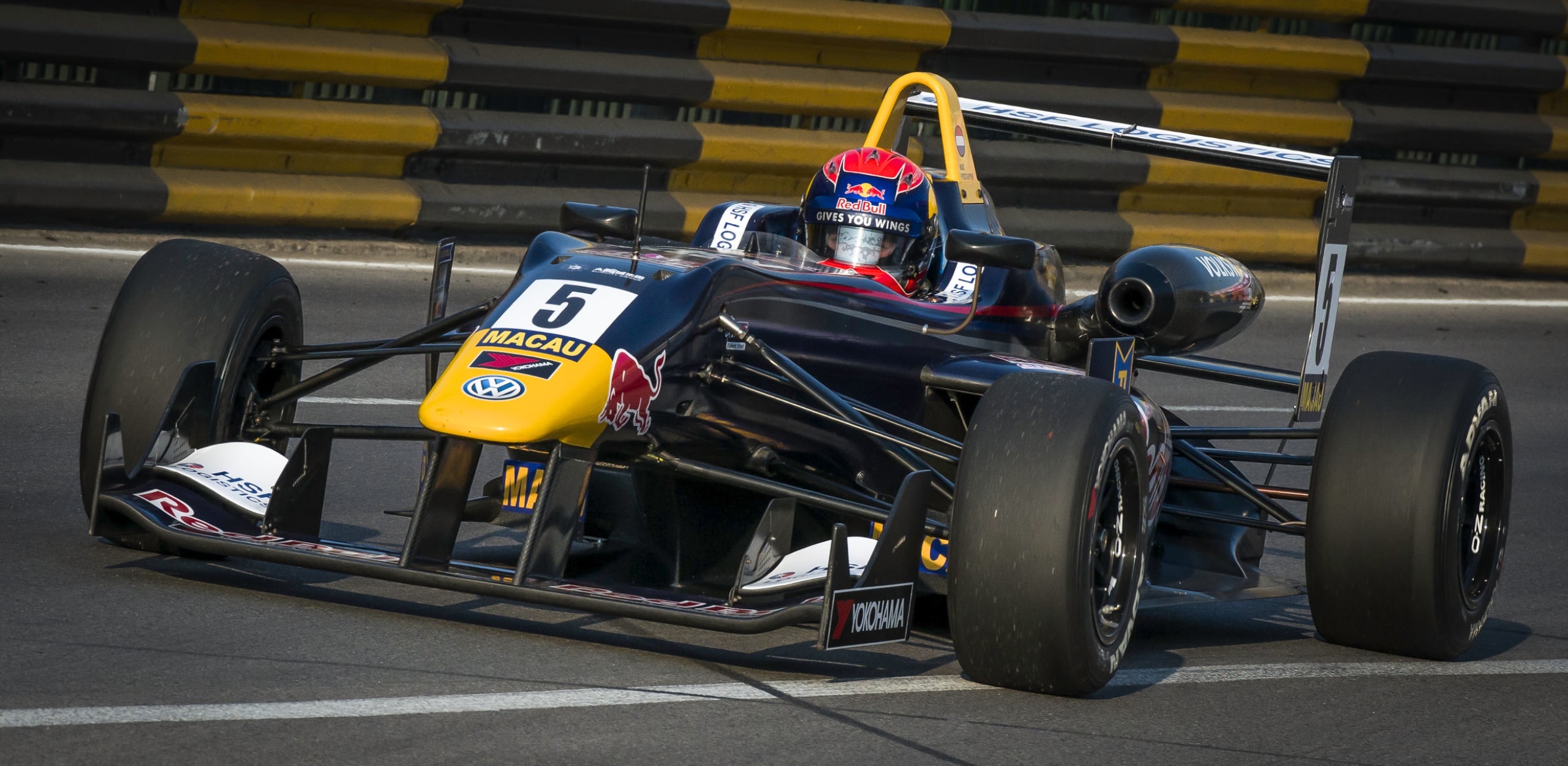
“Max is a smart kid. I don’t have to work on the mental side with him.
When I speak to his engineers they are impressed by his ability to adapt. I know how good he is. I spotted it when he was nine years old. You could see he had something special and we will all see that in the future. He knows himself that if he makes a mistake and his race ends, it’s his fault. There is no need for me to say anything to him. If he’s not happy with himself, there’s nothing I can add.
He will learn from any mistakes. He is a more complete driver then me. Smoother, more precise. He has the right amount of intelligence and aggression.”
Ah, yes aggression.
Outwardly Max is impressively level-headed and articulate for 17, but he is also his father’s son. In Max, you suspect that there may be traces of Jos’s emotional molten lava, his famed volatility, bubbling under the surface. Over time,
we may yet see it. But for now, he’s a pimply kid living out his dream in a hard man’s world.
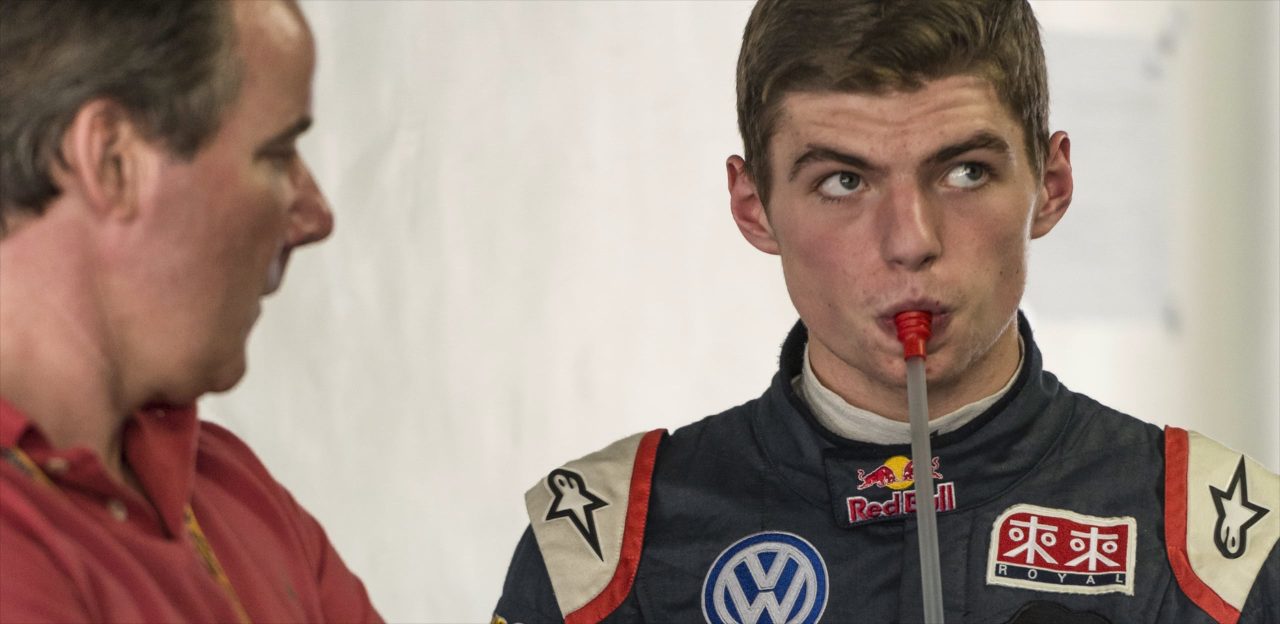
My previous encounter with Max was in 1998. He was 18 months old and sat restlessly in a pram over dinner on a Saturday night in a restaurant adjoining the Autodromo Nazionale Monza. Jos would contest the Italian Grand Prix the following day.
“I spotted it when he was nine years old. You could see he had something special and we will all see that in the future. He knows himself that if he makes a mistake and his race ends, it’s his fault. There is no need for me to say anything to him. If he’s not happy with himself, there’s nothing I can add.”
In those days I shadowed Jos as PR Director of Stewart Grand Prix, where he drove alongside Rubens Barrichello in the back half of the 1998 season.
He displayed an intolerance for an ailing Stewart-Ford SF02 with a carbon fibre gearbox casing which was prone to overheating. Often. Of course, Jos is best remembered for being the central character in a dramatic pit lane inferno during the 1994 German Grand Prix at Hockenheim.
So, what about the inherent risks? Having watched footage of his father’s Benetton being engulfed in flames with Jos still in the cockpit, breathing in asphyxiating fumes, does it make Max question his chosen profession?
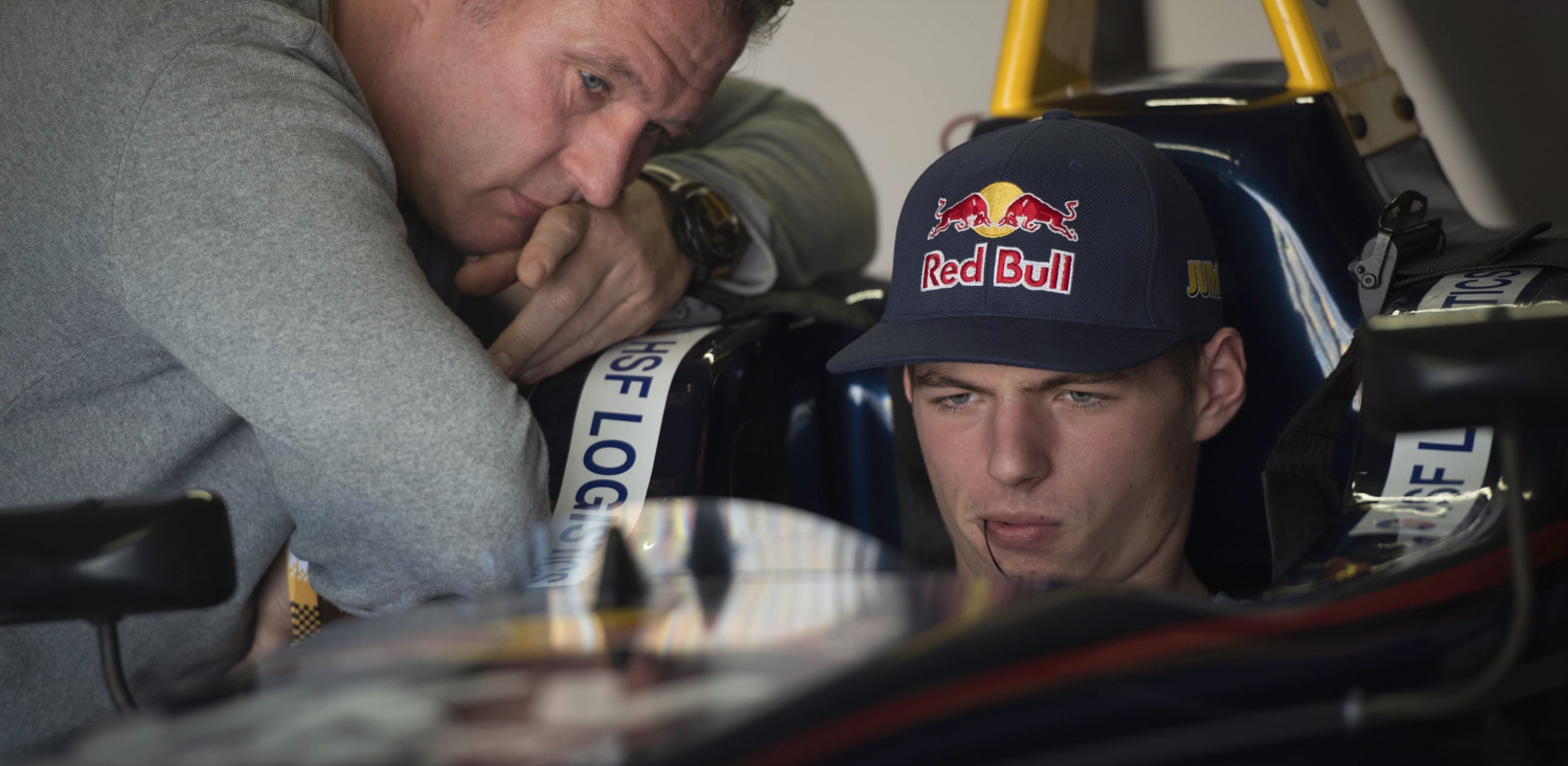
“I have seen the fire. Those things can happen – at least when we had re-fuelling. It is part of racing,” he says matter-of-factly. “There is always accidents in racing. This is what we do as race drivers. These are the risks.”
Aggression and impetuosity have surfaced in Max’s burgeoning F1 career.
Also irritation over a spate of technical failures not of his making in his maiden Formula One season. There has also been a very public rookie pilot error in Monaco, where he found the Ste Devote barrier after tagging the rear of Romain Grosjean’s Lotus under braking.
Max become Formula One’s youngest-ever points scorer with seventh place in his second race at Sepang, Malaysia. Leading to the season-ending Abu Dhabi Grand Prix in mid November, he had amassed 49 world drivers’ championship points and a ton of admirers. Fourth place in Budapest and Austin have been the highlight – Toro Rosso’s best finish in seven years. On the other side of the Toro Rosso garage sits Carlos Sainz Jnr, another rookie and son of a gun. Sainz, Max’s immediate yardstick, has 18 points.
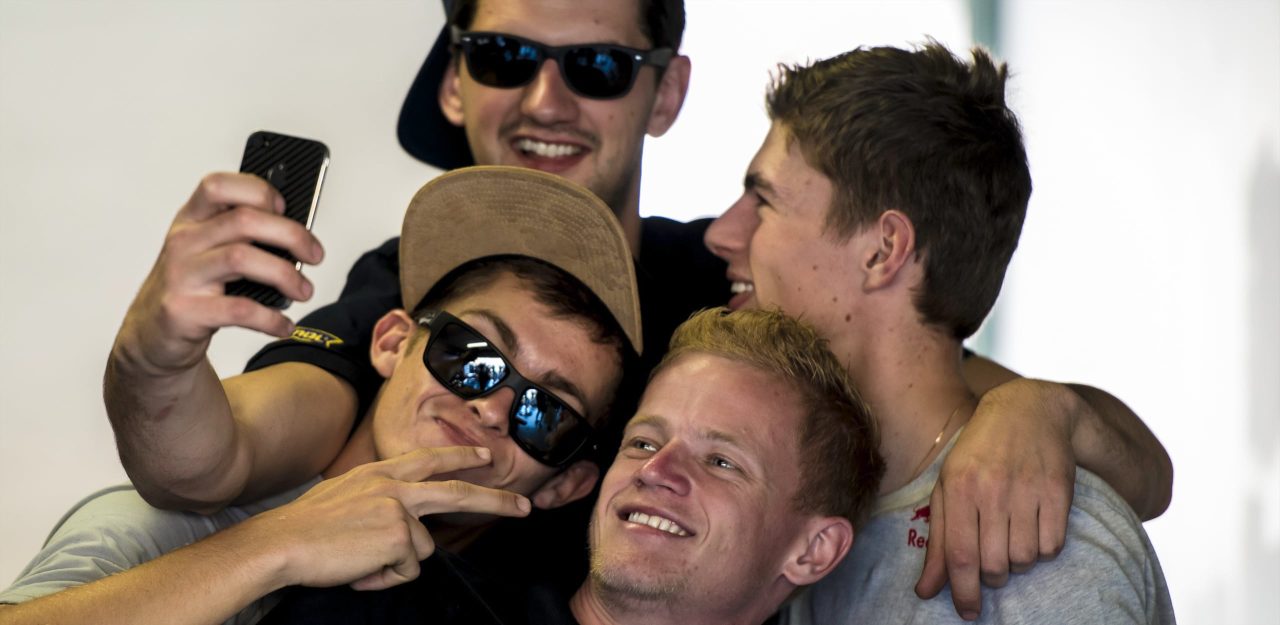
To counter the criticism of Jacques Villeneuve, consider the thoughts of British television broadcaster Martin Brundle, who has called F1 races for the best part of two decades. “We’ve got a megastar on our hands in the making here. What confidence in the car,” he said recently of Max. “Verstappen will be in a world championship-winning team before he is 20. He is showing all the hallmarks of a Senna, of a Schumacher, in my view.”
With time on his side, who’s to say Max Verstappen might not become the daddy of them all.
We end with a rapid-fire Q&A.
Max: The smell of fuel and the noise of an engine.
Max: Doesn’t matter.
Max: I don’t have a car yet. I don’t have a licence.
Max: My dad.
Max: To win the world title.
Max: Meat.
Max: Red Bull.
Textbook.